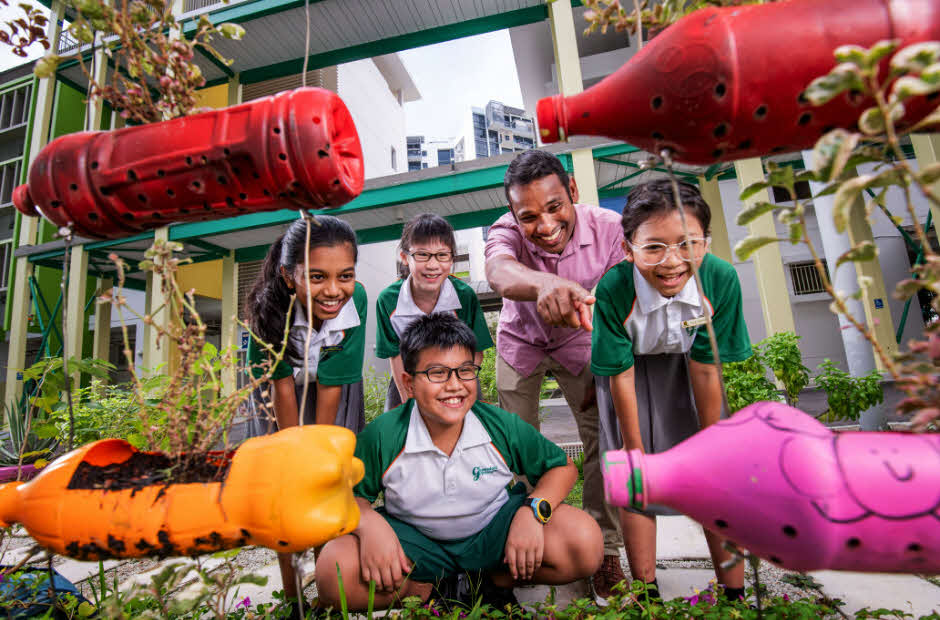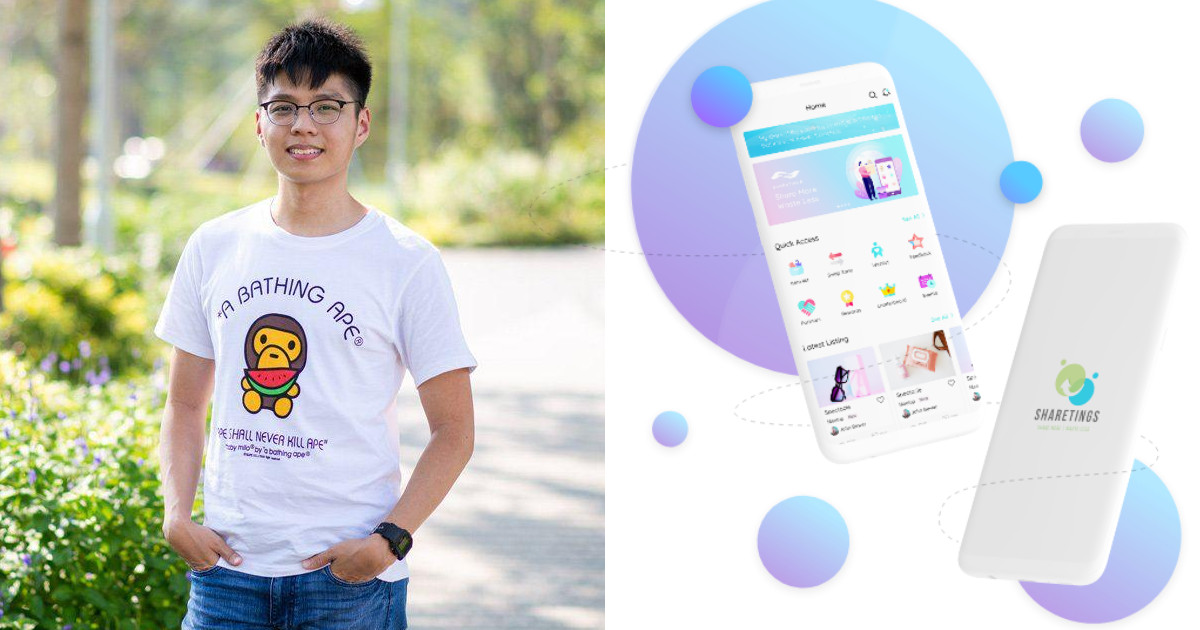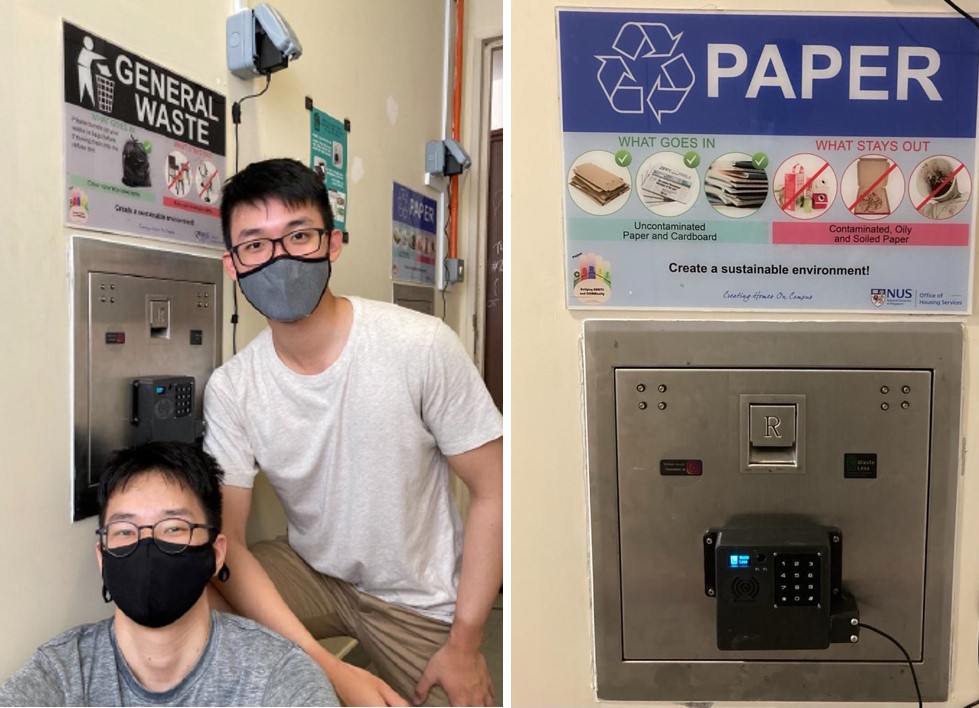Instead of just reading about the need to care for the environment in their science textbooks, Anchor Green Primary School students walk the talk.
The students pitch in to clean their classrooms daily and make the effort to deposit unwanted recyclables into colourful bins around the campus. Primary 1 students also “adopt” a part of the school’s eco-garden, and help to maintain and look after the plants.
These initiatives are part of the school’s Learning for Life Programme (LLP), aimed to help students to not just understand the importance of conserving the environment, but also to put what they learn into practice.
“We hope to inculcate in students the right attitudes and lifestyle habits towards caring for and protecting the environment,” explains Mr Chong Chee Wee, Year Head at Anchor Green Primary School. “We also want to equip students with the skills to be active contributors to the community.”
Environment conservation lessons are not only in science classes. In art classes for lower primary students, students are tasked with designing posters which provide tips to save water. English lessons also incorporate reading materials on water conservation, and Primary 5 and 6 students get to work on group projects related to environmental conservation.
Paying it forward
Beyond being aware of the importance of going green, older students in the school go one step further and share their knowledge with their peers and the community.
Primary 3 students are tasked with guiding their schoolmates in sorting out food waste for the recycling machine on the school campus, and they would help to pack the compost generated by the machine for community gardens in the neighbourhood.
Students would also have a chance to apply their knowledge of environmental conservation outside their school environment. They have brought pre-schoolers on a trail of the nearby Sengkang Wetlands to show the children the importance of conserving water, as well as ways to keep Singapore’s waterways clean.
Through these activities, students have discovered that environmental conservation is not just a concept seen in the textbook, but something that can be practiced in their daily lives.
“I try to ensure that I buy only what I can eat, so that I do not create food waste,” shares Hee Hong Zhi, a Primary 4 student. “I can also tell my family about the importance of not wasting food.”
Other than learning to respect the environment, the students have learned to empathise with people around them, gained confidence and manage better in unfamiliar situations.
For Primary 5 student Lee Ke Xuan, she was initially worried about communication issues last year, when she was tasked with guiding her younger schoolmates in cleaning the classroom.
“I was a little nervous about talking to my buddy because I don’t think I can speak very well,” she recounts.
“The experience in communicating with a junior for this programme not only helped me to gain confidence, I understood the value of working together,” adds Primary 5 student Jazel Soh.
Jazel has also learned to appreciate the work which her family puts into keeping her home clean.
“Learning how to clean our school taught me to be independent in doing chores at home,” she shares. “I can help to relieve my parents, especially after they have had a long day at work.”






